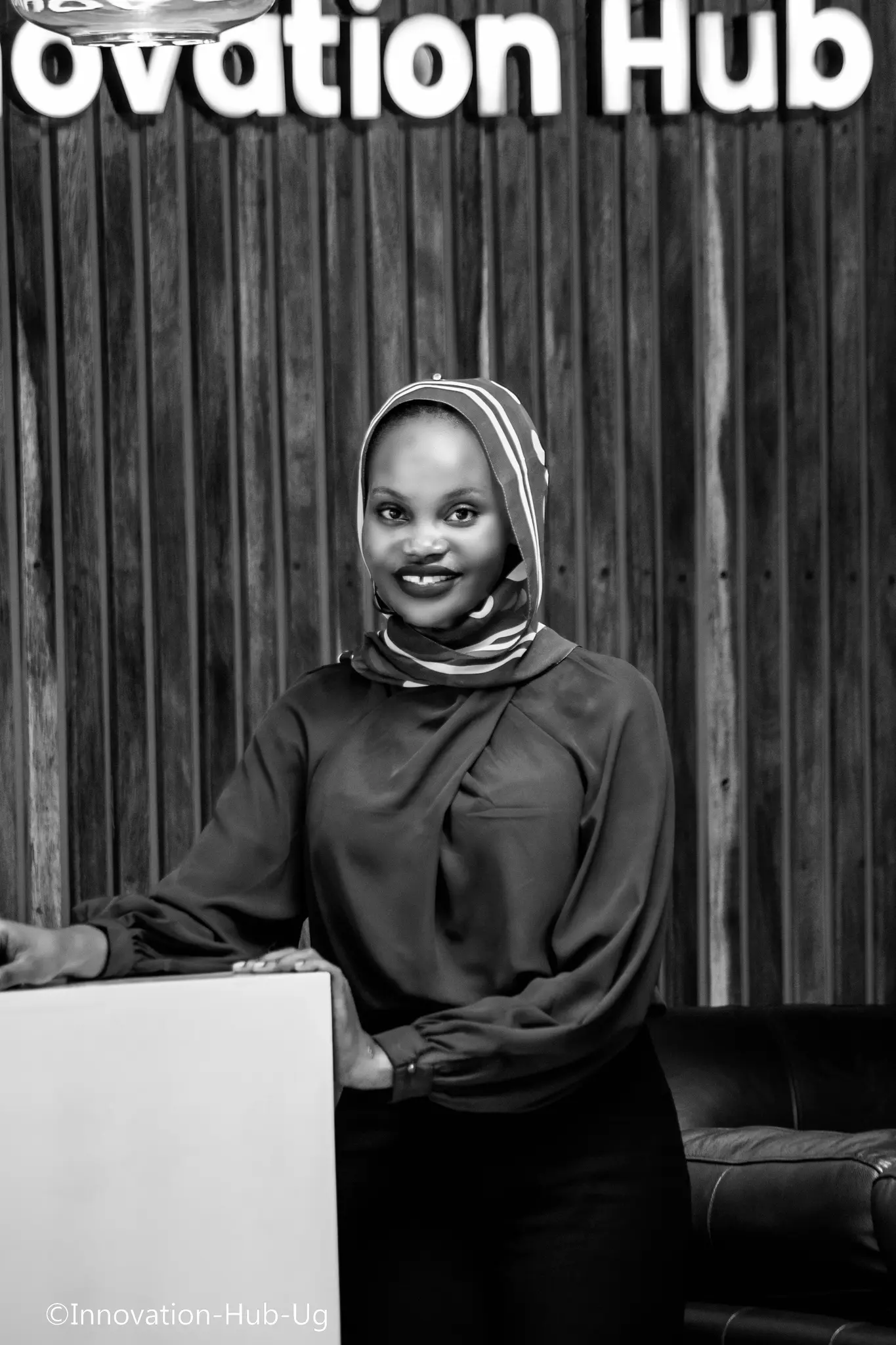🍀 Registration to this program is now closed. The selection of the participants will be announced shortly! 🍀
Are you ready to tackle the future of sustainable agriculture? Join us at the Green Growth AgriHack Uganda 2024, where innovators, developers, and industry experts will come together for an exciting weekend of hacking to revolutionize the agriculture sector.
This 48-hour hackathon is all about solving real-world agricultural challenges through technology and innovation, with a focus on green growth and sustainability. Participants will form teams to create practical digital solutions that can drive the future of eco-friendly agriculture, improve efficiency, and make a positive impact on food security and climate resilience.
This year's event focuses on "Green Growth," leveraging technology to enhance sustainability in agriculture while addressing issues such as food security, climate change, and resource management. Participants will work in diverse teams to develop digital tools, platforms, and other tech solutions that promote efficient, eco-friendly farming practices.
Key challenge areas are:
- Market Stability and Access
- Climate Resilience and Environmental Adaptation
- Farmer Education and Financial Inclusion
- Disease Management and Risk Mitigation
- Extension, Youth appeal and skilling, and sustainable business
Read more about the Challenges and possible solutions in the "Challenges" tab!
Whether you’re passionate about renewable energy in farming, smart irrigation systems, or reducing waste in the agricultural value chain, this hackathon offers you the opportunity to turn your ideas into reality. Throughout the event, you'll get support from top-notch mentors and experts in both the tech and agriculture sectors, who will guide you from ideation to a working prototype.
The event will culminate in a pitch session, where teams will present their innovative solutions to a panel of judges and investors. The best teams will be awarded prizes and opportunities to take their projects to the next level.
Green Growth AgriHack Uganda 2024 is inspired by the success of previous hackathons like Garage48's "Tech for Agriculture 2018." This year, we’re raising the bar, challenging you to develop solutions that enhance agricultural productivity and promote environmental sustainability.
Don’t miss the chance to shape the future of agriculture. Whether you’re a coder, designer, engineer, or just someone with a passion for sustainability, this is your opportunity to make a real difference.
🍀🏆 The prize fund for the best teams is 10 000€ and the best teams will continue their journey in the acceleration program! 🏆🍀
The BootCamp for the selected teams is taking place from 8-12th of November 2024 and it is followed by the 6-month long acceleration program.
Join us in Uganda from October 18-20, 2024, and let’s build a greener future together!
This project is supported by ESTDEV- Estonian Development Cooperation Center💙🖤🤍
Friday, 18th of October
17:30 - Check-in, networking, coffee, snacks
18:15 - Introduction to the hackathon, Garage48 Joao Rei
18:30 - Opening remarks
18:45 - Presentation of ideas
20:00 - Team formation
21:00 - Team work begins!
Saturday, 19th of October
08:00 - Coffee & light breakfast. Development continues
09:00 - Checkpoint #1- the whole team should show up
10:00 - Mentors go around
13:00 - Lunch
13:45 - Product development
16:00 Pitch training
17:00 - Checkpoint #2
19:00 - Dinner
19:45 - Product development continues
Sunday, 20th of October
08:30 - Coffee & light breakfast. Development continues
09:00 - Checkpoint #3
10:30 - Pitch drill #1 (running in parallel- Main Hall and Mentors Room)
12:00 - Lunch
13:00 - Pitch drill #2 with product demonstration
14:30- Coffee break with light meal/snacks
15:00 - Final event
17:30 - Winners & Networking & Cake!
18:00 End of Day #3
The Green Growth Hackathon, set for October 2024 at the National ICT Hub, aims to drive innovation in the agribusiness sector by uniting tech enthusiasts, developers, and industry experts. Organized in collaboration with StartHub Uganda and Garage48, with support from Estonian Development Cooperation (ESTDEV), this event will tackle the pressing challenges faced by Uganda’s agricultural sector.
To ensure the event's impact and relevance, we plan to invite key players from the agribusiness industry to showcase their innovations. This will help prevent duplication of efforts and inspire participants to create unique and impactful solutions. Stakeholder engagements have been conducted to identify the most significant challenges in agriculture, and the insights gathered will shape the event's themes and focus areas.
Below, you will find a detailed description of the challenges and potential solutions.
Please note that all ideas and solutions should prioritize greener and more sustainable approaches to agriculture.
1. Market Stability and Access
Price Stability and Market Information:
Real-Time Price Monitoring App: Develop a mobile or web application that provides real-time market price updates for various crops, including historical data and price trends. Ensure the app features notifications for price changes and predictive analytics for future price movements.
Price Regulation System: Create a digital system that helps regulate and stabilize prices by integrating market data, supply chain information, and predictive algorithms to prevent price spikes and crashes. Include features for setting price ceilings and floors based on market conditions.
Market Price Forecasting Tool: Build a tool that uses machine learning algorithms to forecast market prices for different crops, helping farmers make informed decisions about when and where to sell their produce.
Direct Market Access and Disintermediation:
Farmer-to-Buyer Platform: Design a digital platform or app that connects farmers directly with buyers (consumers, retailers, or wholesalers), allowing them to list their produce, negotiate prices, and complete transactions without intermediaries.
Digital Marketplace for Smallholders: Develop an online marketplace specifically for smallholder farmers to showcase and sell their produce. Include features for secure payment processing, logistics management, and customer feedback. -
Supply Chain Transparency Tool: Create a tool that enhances transparency in the supply chain. This tool should allow farmers and buyers to track the journey of produce from farm to market, ensuring fair pricing and reducing the role of middlemen.
Advanced Warehousing and Storage Solutions:
- Smart Storage Management System: Develop an IoT-based smart storage system that monitors and controls environmental conditions (temperature, humidity) to preserve the quality of stored produce. Include features for real-time alerts and automated adjustments.
- Modular Warehousing Solution: Design a modular, scalable warehousing solution that can be easily adapted to different storage needs and capacities. Focus on cost-effectiveness and ease of deployment for small and medium-sized farms.
- Predictive Inventory Management Tool: Create a tool that uses data analytics to predict storage needs and optimize inventory levels, helping farmers manage surplus produce efficiently and prevent waste. Include features for forecasting demand and automated stock reordering.
2. Climate Resilience and Environmental Adaptation
Climate-Adaptive Farming Solutions:
Predictive Weather Analytics Tool: Create a tool or app that provides farmers with accurate weather forecasts and predictive analytics tailored to their specific location. Include features for tracking weather patterns, extreme weather alerts, and advice on how to adjust farming practices based on upcoming weather conditions.
Climate-Resilient Farming Practices App: Develop a mobile or web application that offers guidance on climate-resilient farming practices. Include information on crop varieties suited to changing climates, soil management techniques, and crop rotation strategies to enhance resilience.
Drought-Resistant Crop Solutions: Design a system or app that helps farmers identify and adopt drought-resistant crop varieties. Integrate AI and machine learning to predict drought patterns and recommend the most suitable crops and cultivation methods.
Efficient Water Management System: Design a smart irrigation system that uses sensors and data analytics to optimize water usage for different crops. The system should include features for real-time soil moisture monitoring, weather data integration, and automated irrigation scheduling to conserve water and improve crop yields.
Climate-Smart Agriculture Toolkit: Develop a comprehensive toolkit or mobile app that offers practical guides on climate-smart agriculture practices, including hydroponics and other modern farming techniques. The toolkit should provide step-by-step instructions and resources for implementation.
Sustainable Utilization of Natural Resources:
Swamp Agriculture Management Tool: Develop a digital platform or app that provides best practices and management techniques for the sustainable use of swamp lands in agriculture. Include features for monitoring swamp health, soil quality assessment, and guidelines for maintaining ecological balance.
Organic Farming Guidance Platform: Create a platform that offers resources and support for transitioning to and maintaining organic farming practices. Features should include organic certification guidelines, pest and disease management without synthetic chemicals, and organic fertilizer application techniques.
Eco-Friendly Fertilizer and Soil Enhancer App: Design an app that helps farmers create or source eco-friendly fertilizers and soil enhancers. Include tools for formulating organic compost, using natural soil conditioners, and assessing the environmental impact of different soil management practices.
3. Farmer Education and Financial Inclusion
Skill Development and Knowledge Sharing:
Agricultural Training Platform: Develop a comprehensive digital platform that offers educational content, tutorials, and interactive courses focused on modern agricultural practices. Ensure the platform is accessible via mobile and desktop, and include features for tracking progress, certifications, and community forums.
Financial Management and Business Skills App: Create a mobile app that provides training modules on financial management, budgeting, and business planning specifically tailored for farmers. The app should offer practical tools such as budgeting calculators, expense trackers, and business plan templates.
Mentorship and Knowledge Exchange Network: Design a platform that connects experienced agricultural professionals with farmers, particularly women and youth, for mentorship and knowledge sharing. Include features for scheduling virtual meetings, sharing best practices, and accessing a repository of industry insights and case studies.
Innovative Funding Solutions:
Microloan and Grant Platform: Develop a digital platform that facilitates access to microloans and grants for farmers. Include features for loan and grant applications, tracking disbursements, and managing repayments. Integrate financial literacy resources to guide users through the funding process.
Crowdfunding Platform for Agricultural Projects: Create a crowdfunding platform specifically for agricultural projects. The platform should allow farmers to present their projects, set funding goals, and offer rewards or incentives to backers. Include tools for project promotion, progress tracking, and managing funds.
Financial Literacy and Management Toolkit: Design an educational toolkit that provides farmers with financial literacy resources, including online courses, webinars, and interactive tools. The toolkit should cover topics such as financial planning, investment strategies, and managing agricultural income.
4. Disease Management and Risk Mitigation
Disease Management and Crop Protection:
Smart Disease Detection System: Develop an AI-powered mobile app or sensor-based system that uses image recognition to identify and diagnose crop diseases such as banana bacterial wilt. The system should provide actionable insights for treatment and prevention, integrating with local agricultural extension services for real-time support.
Integrated Pest Management Platform: Create a digital platform that offers farmers data-driven recommendations for integrated pest management. This platform should include features such as pest identification, treatment guidelines, and forecasting tools to help farmers prevent and manage pest outbreaks efficiently.
Resilient Agricultural Practices Guide: Design an interactive tool or mobile app that provides farmers with guidelines and best practices for building resilience against common crop diseases. Include modules on crop rotation, disease-resistant varieties, and soil health management to support sustainable farming practices.
Disaster Preparedness and Risk Mitigation:
Disaster Risk Management App: Develop a mobile application that provides real-time alerts, weather forecasts, and disaster preparedness information for farmers. Include features for risk assessment, emergency response planning, and integration with local disaster management authorities for coordinated support.
Agricultural Insurance Model: Create a digital platform that offers customizable insurance products tailored to the needs of farmers. This platform should allow farmers to assess risks, select appropriate coverage options, and manage claims efficiently. Incorporate educational resources on insurance benefits and procedures.
Disaster Response Simulation Tool: Design a simulation tool or game that helps farmers practice and prepare for disaster scenarios. The tool should offer interactive scenarios for different types of natural disasters, allowing farmers to test their preparedness plans and learn effective response strategies.
5. Extension, Youth appeal and skilling, and sustainable business
Extension Services and Training:
Digital Extension Platform: Build a digital platform that connects farmers with agricultural experts and extension services. The platform should offer virtual training sessions, tutorials, and Q&A features to provide farmers with up-to-date knowledge and practical skills.
Funding and Resource Mobilization App: Create an app that helps farmers access funding opportunities, such as grants and loans, and connect with NGOs or research institutions for support. The app should include resources for navigating the funding process and accessing educational materials.
AI-Powered Training Assistant: Develop an AI-driven assistant that provides personalized training recommendations based on a farmer’s specific needs and goals. The assistant should offer tailored educational content, tutorials, and practical tips to enhance farmers’ knowledge and skills.
Youth Empowerment in Agriculture:
Agriculture Entrepreneurship Program: Design a program that provides youth with training in agricultural entrepreneurship, including access to land, technology, and resources. The program should include mentorship, workshops, and startup support to make agriculture more attractive and viable for young people.
Technology-Driven Farming Solutions: Create a platform or app that introduces young people to technology-driven farming solutions, such as hydroponics and living gardening. The platform should offer educational content, interactive tools, and success stories to inspire and engage youth.
Youth Engagement Campaign: Develop a digital campaign that showcases successful young farmers and agri-tech entrepreneurs. The campaign should include video interviews, social media content, and interactive features to highlight the opportunities and impact of modern agriculture for young people.
Sustainable Business Models for Agri-Tech:
International Model Exposure Program: Create a program that connects local agri-tech founders with successful international models through virtual exchanges, mentorship, and case studies. The program should provide insights into proven strategies for building sustainable agri-tech businesses.
Market-Driven Solution Development: Develop a workshop series or online course that guides founders in creating market-driven solutions. The course should include modules on market research, business modeling, and scalability to help founders build robust, independent business models.
Self-Sustaining Business Blueprint: Design a toolkit or digital guide that offers a clear, actionable blueprint for building self-sustaining agri-tech businesses. The guide should include best practices, case studies, and practical steps for developing scalable and independent business models.
_block.webp)





_large.webp)

.png)










_block.webp)